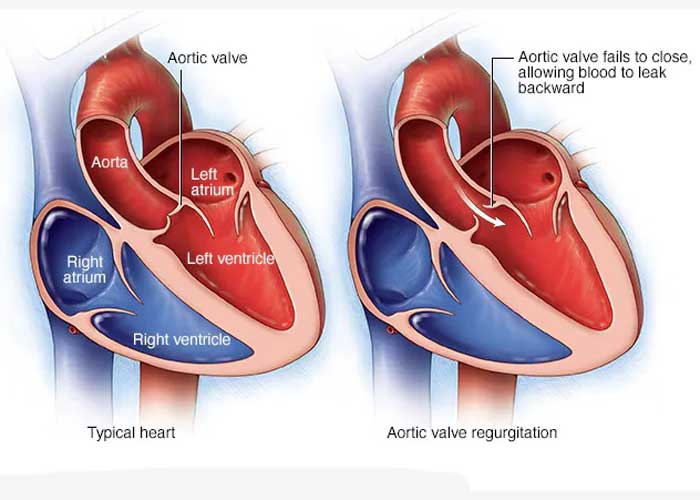Aortic Regurgitation Medical Treatment In Hyderabad
#Best Heart Doctor in Hyderabad

Aortic valve regurgitation, also known as aortic valve insufficiency, is a type of heart valve disease in which the aortic valve is damaged and does not open/close properly. This results in back flow of the blood pumped out of the left ventricle, the main pumping chamber of the heart
What causes aortic regurgitation?
Common causes of aortic valve regurgitation are:
Rheumatic Fever: Blood carries several minerals & nutrients including calcium, which may get deposited on the aortic valve making it stiffer.
Congenital Heart Defect: In a normal healthy person, aortic valve has three cusps that fit together. Some people are born with an aortic valve that has either one or two cusps. Some also have four. Heart function is normal for a while but as the individual moves to adulthood, abnormal valve is likely to get stiffer & may require repair or replacement.
Infective Endocarditis: This infection can damage the aortic valve.
Aortic Valve Stenosis: This condition prevents the valve from opening, causing a blockage.
Are there any signs of Aortic regurgitation?
This condition develops gradually. As such, the patient may not show any signs or symptoms for years. But, in some cases, when there is an infection, aortic regurgitation may occur suddenly
As the condition worsens, the following signs may be noticeable:
Chest discomfort or pain that gets worse with exercise
Tiredness
Breathlessness
Inflammation in the ankles
Rapid pulse rate or palpitations
Heart murmur
Does it cause any complications?
Possible complications of this condition are:
Heart failure
Lightheadedness
Infections like endocarditis
Arrhythmias
Cardiac death
How is it diagnosed?
To diagnose aortic regurgitation, your cardiologist may recommend:
Transthoracic Echocardiogram:
Transthoracic Echocardiogram
Electrocardiogram
Cardiac Magnetic Resonance Imaging
Cardiac Catheterisation
Transesophageal Echocardiogram
CT Scan
How can it be treated?
Mild cases only require frequent monitoring through usual check ups. If the patient has hypertension, the doctor may suggest medicines & lifestyle modifications to control it.
In serious cases, aortic valve replacement may be necessary. It may be performed traditionally through open surgery or through a more advanced procedure known as Trascatheter Aortic Valve Replacement (TAVR).
Is there a way to prevent Aortic Regurgitation?
While there is no sure shot way of preventing aortic regurgitation, you can move towards a healthy heart lifestyle to keep your heart in a good condition.
Eat a healthy & nutritious diet
Quit smoking
Manage your body weight
Exercise for at least 30 minutes everyday


